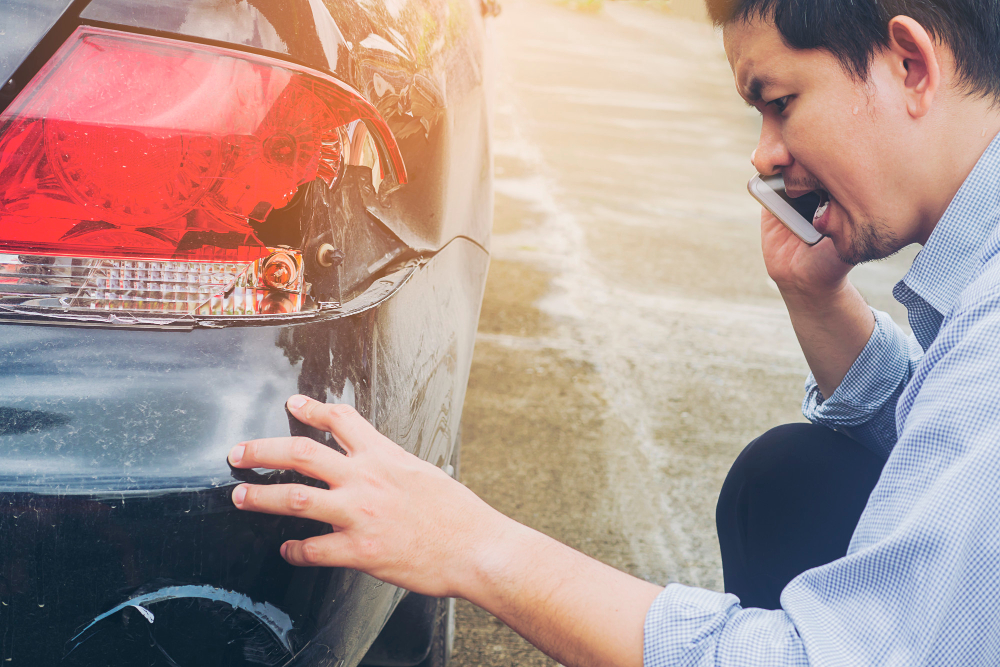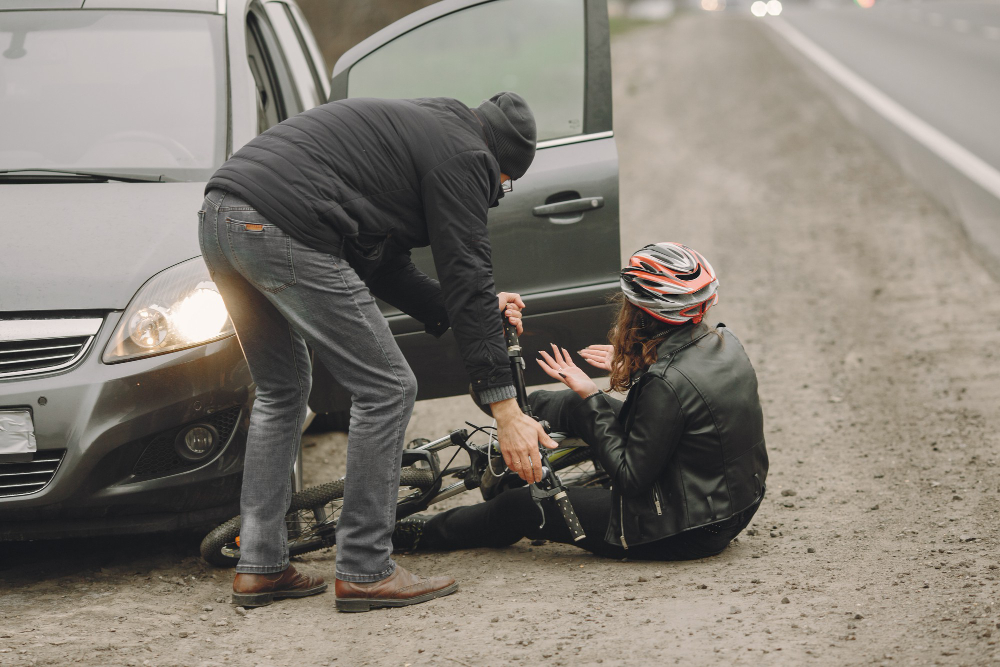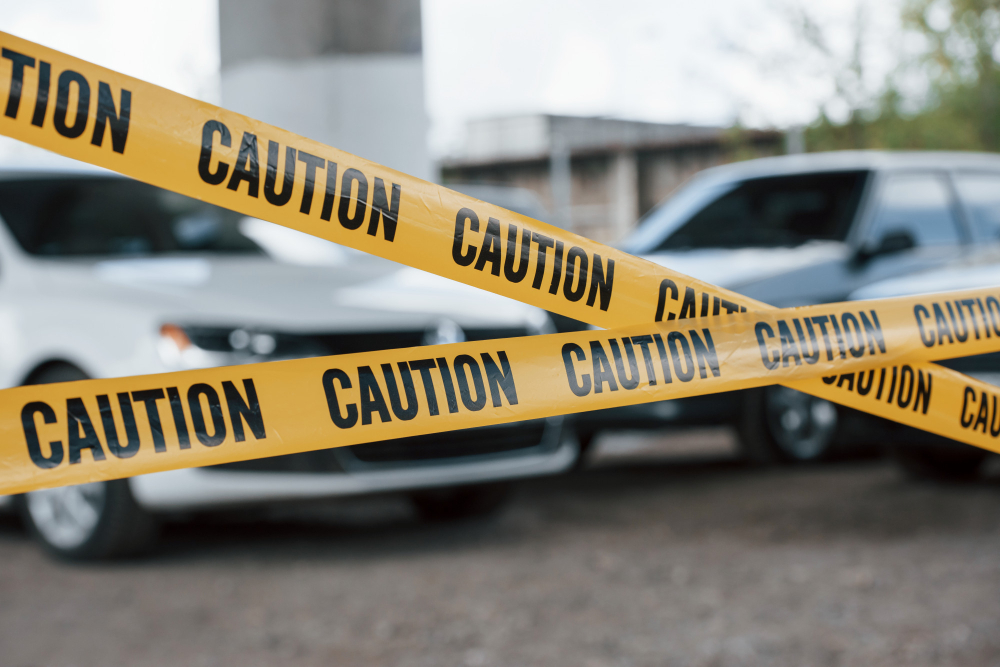Do you know what evidence is the most crucial in a car accident case? Accidents happen every day, and they can be quite traumatic for those involved. They can be caused by driver error, mechanical failure, or external factors such as weather conditions. No matter the cause, car accidents can result in serious injuries and even death.
If you have been involved in a car accident, you may be wondering what evidence is essential to support your case. It’s essential to gather as much evidence as possible, as this can greatly impact the outcome of your case. Here are 7 types of evidence that are crucial in a car accident case:
Police Report

A key piece of evidence in any car accident case is the police report. When an accident occurs, it’s important to call the police and have them come to the scene. They will gather information from both parties involved and any witnesses, as well as assessing the damage to the vehicles.
The police report will include vital information such as date and time of the accident, location, weather conditions, and statements from those involved. This report can be used to determine fault and liability in the accident.
Personal Injury Claims

If you have been injured in a car accident, it is important to seek medical attention immediately, even if your injuries seem minor. Some injuries, such as whiplash, may not manifest until a few days after the accident. Seeking medical attention will not only ensure your well-being, but it can also provide documentation for any potential personal injury claims.
To make a successful personal injury claim, it is important to gather evidence and documentation of the accident. This includes taking photos of the accident scene, obtaining witness statements, and keeping records of any medical expenses or treatments related to your injuries.
When filing a claim, it is crucial to provide all necessary evidence and documentation to support your case. This can include police reports, medical records, and any other relevant documents.
Seek Legal Representation
In some cases, it may be necessary to seek legal representation for your personal injury claim. This can be especially helpful if the insurance company is denying your claim or offering a settlement that is not sufficient to cover your damages.
A personal injury lawyer can help you navigate the legal process and negotiate with the insurance company on your behalf. They can also gather additional evidence and strengthen your case to increase your chances of receiving fair compensation.
It is important to choose a reputable and experienced personal injury lawyer who specializes in cases similar to yours. You should also make sure to discuss their fees and how they will be compensated for their services.
Most personal injury lawyers work on a contingency basis, meaning they only get paid if you receive a settlement or win your case in court. This can give you peace of mind and alleviate financial stress during this difficult time.
Gathering Evidence

In order to strengthen your case, it is important to gather as much evidence as possible. This can include medical records, police reports, witness statements, and any other documentation related to the incident. It is crucial to collect this evidence as soon as possible after the accident, as memories can fade and important details may be forgotten.
Additionally, it is important to take photos of any injuries sustained and the scene of the accident. These photos can serve as visual evidence and help support your claim.
My Experience:
I was involved in a car accident last year, and I cannot stress enough the importance of collecting evidence. The other driver was at fault but tried to blame me for the accident.
Luckily, I had taken photos of the damage to both vehicles and my injuries immediately after the accident. These photos served as crucial evidence in proving that I was not at fault and helped me receive the compensation I deserved for my injuries.
I recommend that anyone who is involved in a car accident, no matter how minor it may seem, should take photos of the scene and any visible damage or injuries. This can help protect you from false accusations and assist with insurance claims.
Conclusion
To conclude, car accidents are unpredictable and can happen to anyone at any moment. It is important to remain calm and follow the appropriate steps after an accident occurs. This includes checking for injuries, exchanging information with the other driver, and documenting the scene of the accident.
Remember to always prioritize safety and seek medical attention if needed. It is also important to report the accident to your insurance company and follow their guidelines for filing a claim.
By following these steps, you can reduce the stress and potential consequences of a car accident. Stay vigilant on the road and always drive responsibly to help prevent accidents from happening in the first place.
Frequently Asked Questions
What steps should I take right after a car accident?
As mentioned earlier, the first and most important step is to prioritize safety. Check yourself and others for injuries, move to a safe location if possible, and call for emergency assistance. If you can, collect information such as contact and insurance details from all parties involved in the accident.
When’s the best time to contact my insurance company after a car accident?
It is best to contact your insurance company as soon as possible after a car accident. Most policies require prompt reporting of accidents, and delaying the process could result in complications with your coverage.
Your insurance agent will be able to guide you through the next steps and help you understand what is covered under your policy. Be prepared to provide them with all the necessary information, such as the location of the accident, the names of any other drivers involved, and a police report if available.
Do you need to file a claim?
If you were at fault in the accident, or if the other driver is uninsured and you have collision coverage, then yes, you will likely need to file a claim with your insurance company. If the other driver was at fault and has insurance, their policy should cover any damages to your vehicle and medical expenses.
In this case, it is important to obtain the other driver’s insurance information and contact their provider directly to initiate the claims process.
What if the other driver doesn’t have insurance?
If the other driver does not have insurance and is at fault for the accident, you may still be able to receive compensation through your own insurance company. This would depend on whether or not you have uninsured motorist coverage as part of your policy.
Uninsured motorist coverage is an optional add-on to your car insurance that provides financial protection in the event of an accident with an uninsured driver.

